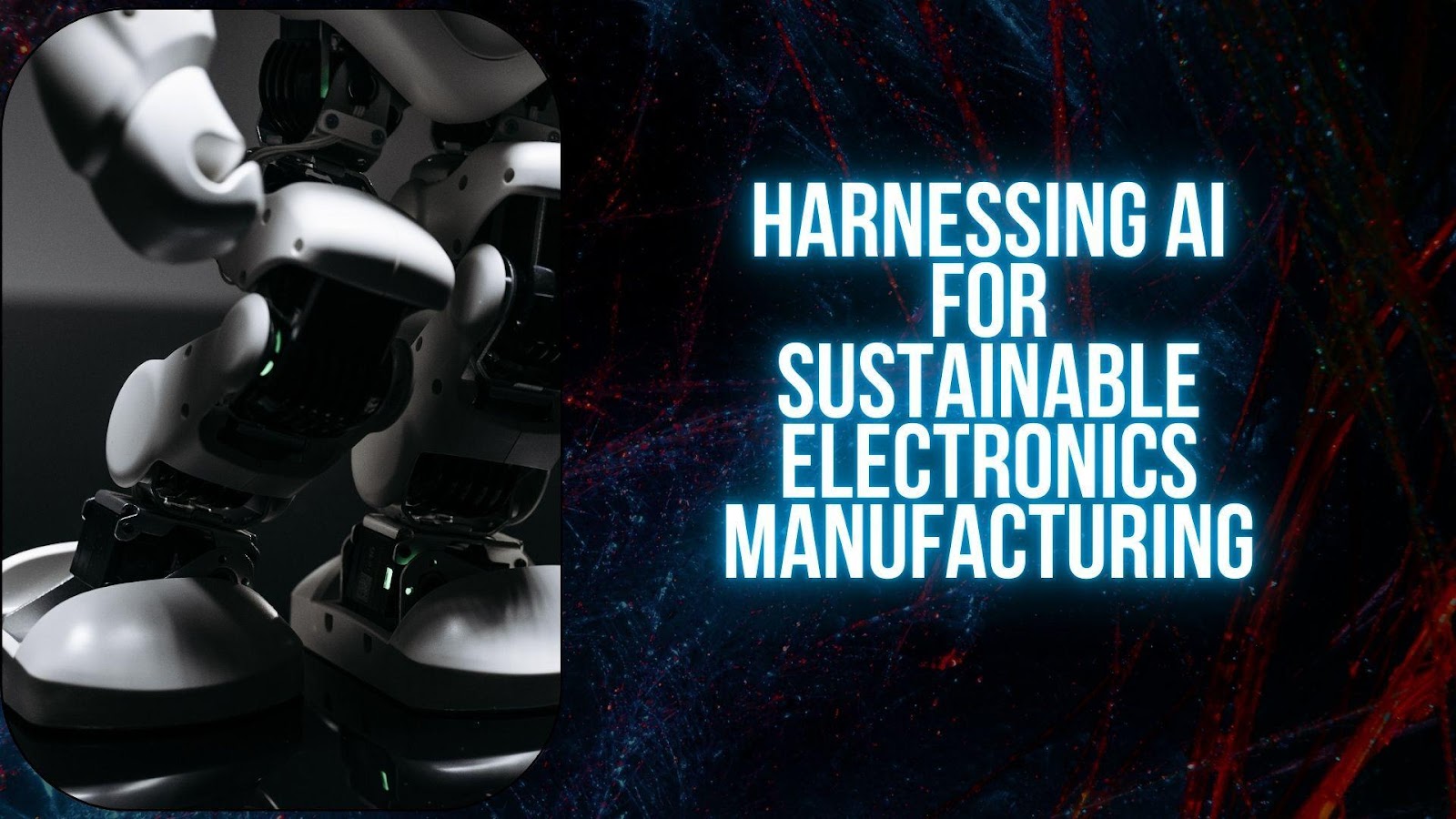In the face of growing environmental challenges and increasing demand for efficiency, the electronics manufacturing industry is undergoing a profound transformation. Gautam Nandkishore Nayak, a professional specializing in AI and sustainable manufacturing, explores how advanced technologies are revolutionizing sustainability practices across the sector. His work sheds light on AI-driven innovations that enhance resource efficiency, reduce waste, and improve supply chain transparency.
The Sustainability Challenge in Electronics Manufacturing
Electronics manufacturing remains one of the most resource-intensive industries, contributing 5.2% of global greenhouse gas emissions. Semiconductor fabrication, a cornerstone of the industry, consumes significant energy—up to 1,000 GWh annually per facility. Additionally, the sector generates 61.3 million metric tons of e-waste annually, with only 22.3% of it being formally recycled. These challenges underscore the urgency for adopting sustainable practices and optimizing resource utilization.
AI-Driven Resource Optimization
Artificial intelligence has become a key enabler in optimizing resource consumption within electronics manufacturing. Machine learning algorithms accurately predict material requirements, reducing raw material consumption by 17.8% while increasing production efficiency by 23.4%. AI systems also streamline production schedules and enable real-time monitoring, minimizing waste during manufacturing processes. These innovations not only reduce costs but also lower the sector’s environmental footprint, making sustainable manufacturing a more achievable goal.
Enhancing Waste Management with AI
The growing volume of electronic waste presents a critical challenge for manufacturers. AI-powered recycling systems have transformed waste management, achieving a 45.6% increase in material recovery rates, particularly for precious metals like gold and silver. These systems use advanced algorithms to identify recyclable components with exceptional accuracy, maximizing resource recovery. Blockchain integration further enhances waste management by providing transparent tracking of recyclable materials, ensuring compliance with sustainability standards.
Advancing Supply Chain Transparency
Supply chain complexity remains a significant hurdle for electronics manufacturers, with companies managing an average of 8,200 tier-1 suppliers across 96 countries. AI-powered blockchain systems have revolutionized supply chain transparency by enabling manufacturers to trace material origins with 99.3% accuracy. These systems streamline compliance processes, reducing verification times by 76% and costs by 73%. Such advancements empower organizations to meet increasing regulatory demands while ensuring ethical sourcing of materials.
The Role of Digital Twin Technology
Digital twin technology, combined with AI, offers transformative potential in manufacturing. By creating virtual replicas of physical processes, digital twins enable real-time synchronization, improving production accuracy by 41% and reducing development cycles by 38%. These systems also optimize manufacturing processes with predictive analytics, ensuring first-time-right production and reducing resource wastage.
Energy Optimization Through AI
Energy consumption is a critical area for improvement in electronics manufacturing. AI-driven smart grid systems have enabled facilities to reduce peak energy loads by 43.2%, integrating renewable energy at rates up to 64.8%. Predictive maintenance powered by machine learning minimizes energy-related equipment failures, extending the mean time between failures (MTBF) by 182% and saving 2.1 million kWh annually per production line. These efforts contribute significantly to reducing carbon emissions and operational costs.
Tackling Carbon Emissions with AI
Transportation and logistics are major contributors to the industry’s carbon footprint. AI-powered route optimization algorithms have reduced fuel consumption by 28.6%, cutting logistics-related carbon emissions by 38.9%. Multi-modal transport systems, supported by neural networks, optimize container utilization and reduce shipment numbers, further decreasing emissions by 42.3%. These AI-driven strategies ensure sustainability without compromising efficiency.
Future Developments in Sustainable Manufacturing
Emerging technologies like quantum computing and autonomous systems hold immense promise for advancing sustainability in electronics manufacturing. Quantum-inspired algorithms have shown potential in optimizing supply chains with 8,450x computational efficiency improvements for complex problems. Autonomous systems, meanwhile, enhance operational accuracy and reduce downtime through real-time monitoring, creating opportunities for unprecedented advancements in efficiency and sustainability.
In conclusion, Gautam Nandkishore Nayak highlights the transformative role of AI in reshaping electronics manufacturing for sustainability. By optimizing resource use, enhancing supply chain transparency, and reducing carbon emissions, AI-driven solutions are paving the way for a more sustainable industry. As emerging technologies like quantum computing gain traction, they will further accelerate this transformation, enabling manufacturers to meet both environmental and operational goals in an increasingly competitive and eco-conscious market.































